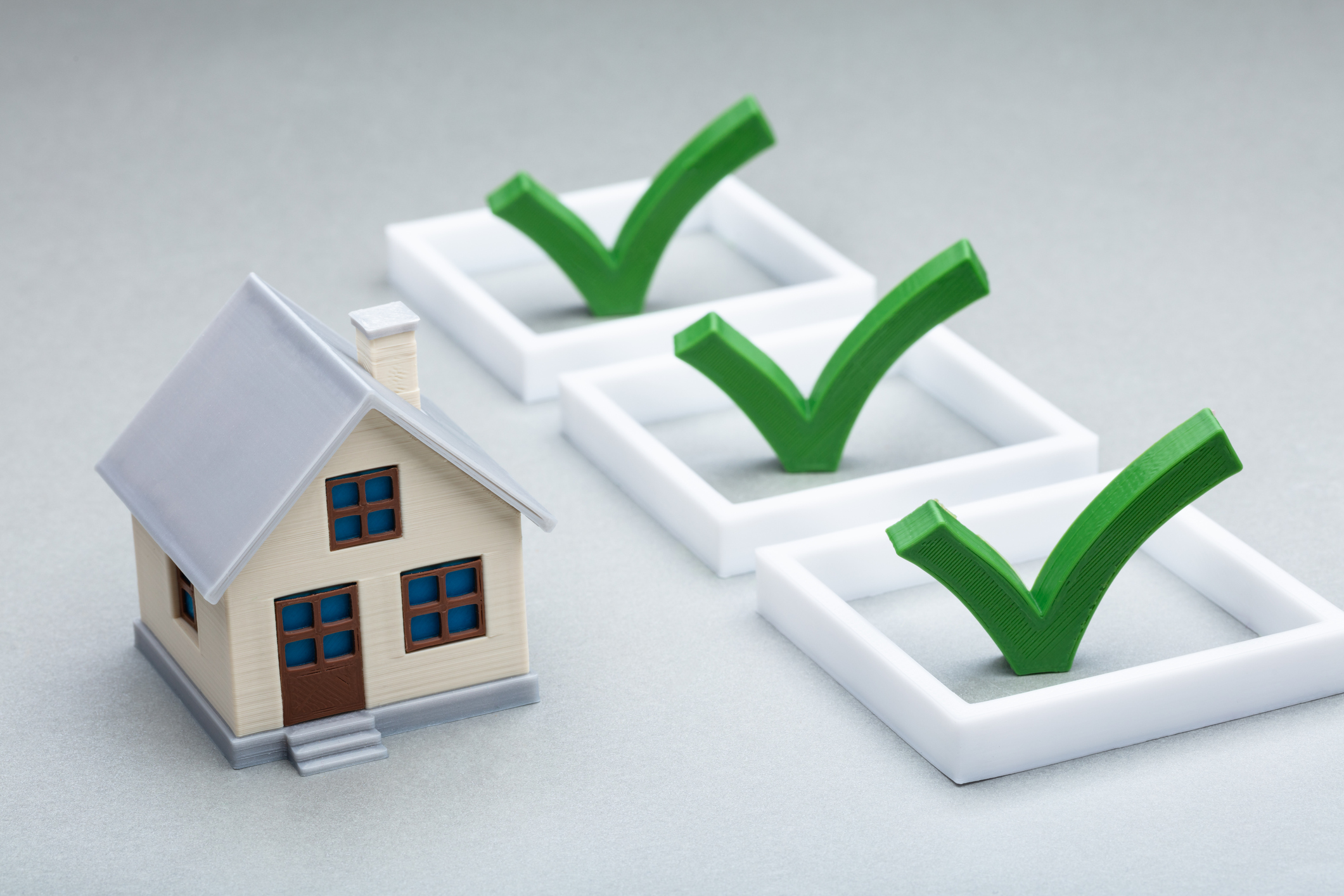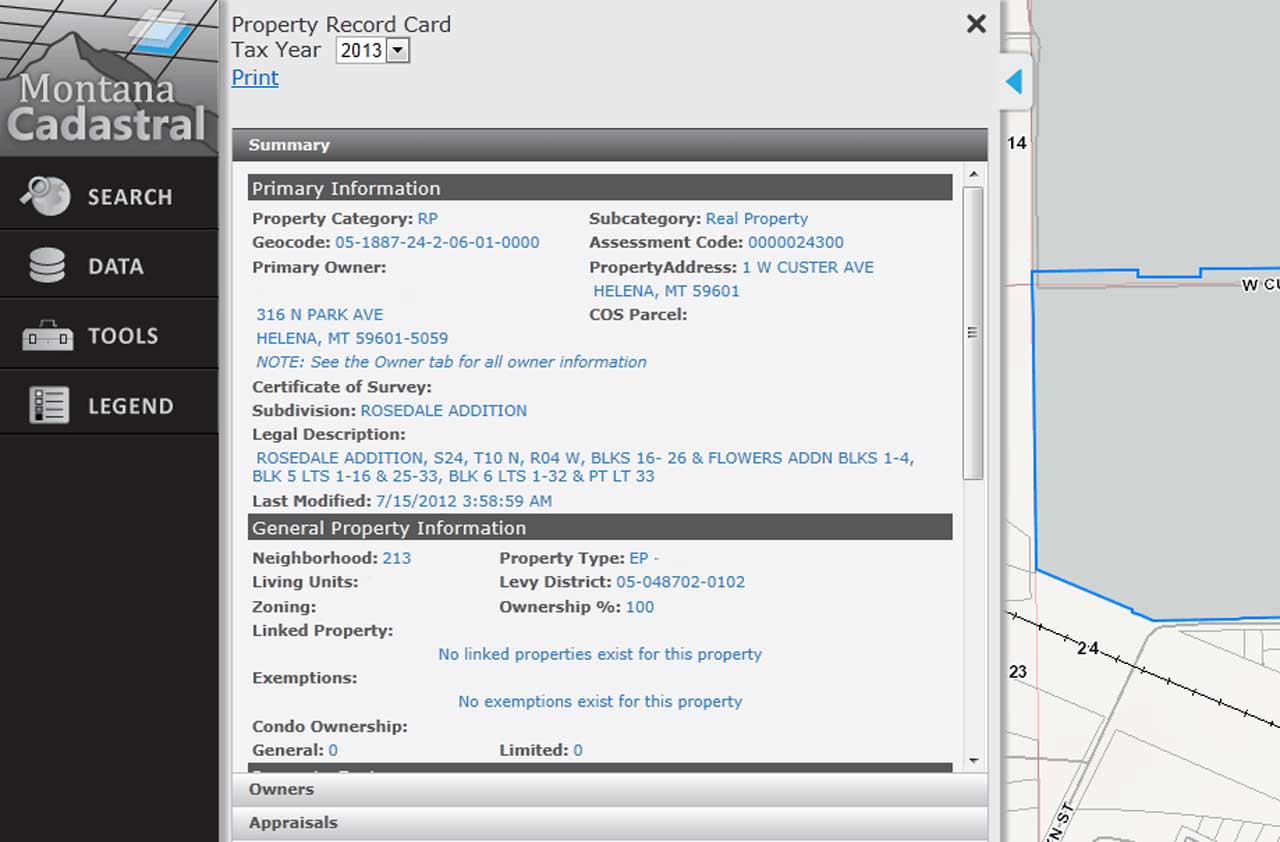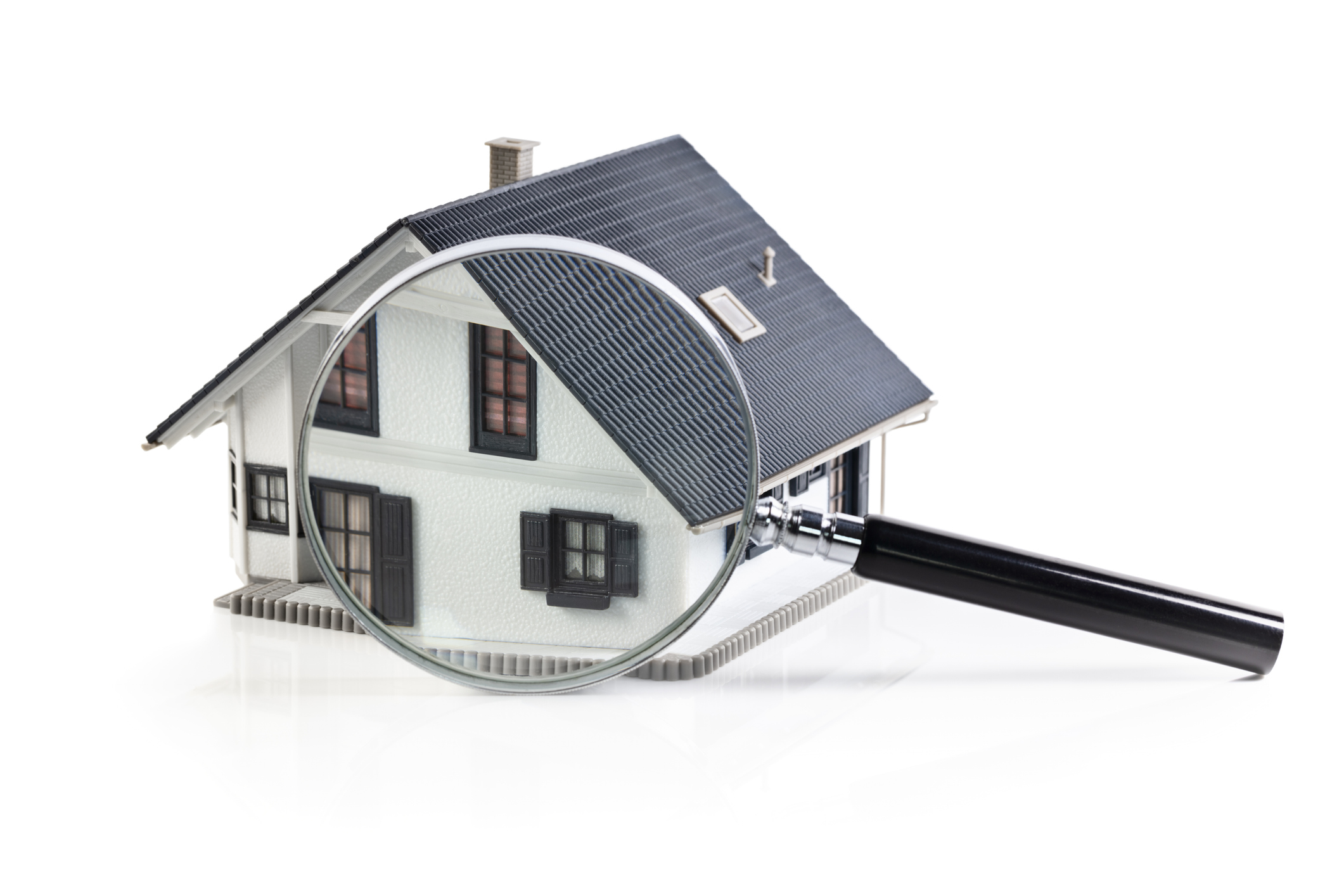Six Steps to Appeal Your Property Tax Bill
As home values increase nationwide, property taxes are also on the rise.
Gabriella Cruz-Martínez

Profit and prosper with the best of Kiplinger's advice on investing, taxes, retirement, personal finance and much more. Delivered daily. Enter your email in the box and click Sign Me Up.
You are now subscribed
Your newsletter sign-up was successful
Want to add more newsletters?

Delivered daily
Kiplinger Today
Profit and prosper with the best of Kiplinger's advice on investing, taxes, retirement, personal finance and much more delivered daily. Smart money moves start here.

Sent five days a week
Kiplinger A Step Ahead
Get practical help to make better financial decisions in your everyday life, from spending to savings on top deals.

Delivered daily
Kiplinger Closing Bell
Get today's biggest financial and investing headlines delivered to your inbox every day the U.S. stock market is open.

Sent twice a week
Kiplinger Adviser Intel
Financial pros across the country share best practices and fresh tactics to preserve and grow your wealth.

Delivered weekly
Kiplinger Tax Tips
Trim your federal and state tax bills with practical tax-planning and tax-cutting strategies.

Sent twice a week
Kiplinger Retirement Tips
Your twice-a-week guide to planning and enjoying a financially secure and richly rewarding retirement

Sent bimonthly.
Kiplinger Adviser Angle
Insights for advisers, wealth managers and other financial professionals.

Sent twice a week
Kiplinger Investing Weekly
Your twice-a-week roundup of promising stocks, funds, companies and industries you should consider, ones you should avoid, and why.

Sent weekly for six weeks
Kiplinger Invest for Retirement
Your step-by-step six-part series on how to invest for retirement, from devising a successful strategy to exactly which investments to choose.
As summer rolls in, many homeowners have seen their property values shoot up. If you're envisioning big proceeds when you sell your house, rising home prices are a cause for celebration.
However, you might not feel like popping the Champagne when you get your property tax bill. As home prices climb, property taxes follow. Your tax bill is determined by multiplying your home’s assessed value by the local tax rate.
Homeowners will see higher taxes as localities reassess property values, although the pain should ease as price appreciation slows. Keep in mind that local tax rates affect your bill, too. If your municipality lowers rates to provide relief or stay within required levels, your bill could fall or show only a modest increase.
But if your property taxes have increased significantly, you might have grounds for an appeal, particularly if the increase seems out of line with overall appreciation in your area.
Property taxes are an important responsibility when it comes to owning a home or considering where you want to live if you’re in the market to purchase a property. It’s best to go in knowing your rights as a homeowner.
Here are six steps to get you started if you plan to appeal your property tax bill.

Step 1: Know your deadlines
Schedules vary, but local governments commonly send assessment notices to homeowners in the first few months of the year.
As soon as you get yours — or even before — check the deadline for challenging the value. You might have just a few weeks. Be sure you know how your locality assesses property.
Some set the tax assessment at a percentage of market value, 80%, for example, so don’t feel smug if you get an $80,000 assessment on a home you think is worth at least $100,000. Everyone in your jurisdiction should get the same treatment.
Depending on how frequently your community reassesses home values, you might not see a sizable increase in your tax bill right away.
- Some areas refresh values annually, while others do so every other year or every few years.
- If you're selling your home, individual properties are reassessed when they change ownership.

Step 2: Check if you qualify for property tax breaks
When you get your property tax bill, check it for your tax rate, assessment figures and payment schedule, and make sure that all the reductions you’re entitled to are itemized.
Some states allow anyone who owns and lives in a primary home to shield a portion of its value from taxation. You might be eligible for credits based on your income or status as a senior citizen, veteran or a person with a disability.
In Florida, for example, all homeowners are eligible for a homestead exemption of up to $50,000; those 65 and older who meet certain income limits can claim an additional $50,000.
As reported by Kiplinger, some lawmakers in the Sunshine State have also considered eliminating property taxes altogether.
Other tax breaks come in the form of freezes or deferrals.
Rebates and other property tax breaks aren’t automatic: you usually have to apply for them and show proof of eligibility.
Contact your state’s department of taxation or visit its website to see which breaks are available to you.

Step 3: Set the record straight
Check your property’s record card. You can often verify it on your locality’s website, although in some jurisdictions, you might have to go to the assessor’s office to view property cards or request the information by e-mail or fax.
This record is the official description of your house, and if you see an outright error — say, four bedrooms and three-and-a-half bathrooms for your two-bedroom bungalow, for example, the assessor might fix the problem on the spot, reduce the assessed value, and your tax bill. That will save you the trouble of a formal appeal.

Step 4: Compare with your neighbors
One way to check if your property taxes are fair is by comparing your property with similar ones in your neighborhood.
Pull up property cards of several homes of similar age and square footage and with the same number of bedrooms and bathrooms to see how their assessments line up with yours.
Keep in mind, if you’ve remodeled your property, that can add to your property taxes, especially if it significantly increases your home’s market value. That can include adding a pool, deck, even a new fence in your yard.
Search in your area for recent sale prices of homes similar to yours on a website such as Zillow or Realtor.com. Any sales in the past few months might have taken place after your assessor’s latest property evaluation.

Step 5: Build your case
If you find that your assessed value is considerably higher than several similar homes, you might have grounds for an appeal.
You can also appeal your case if the sale prices of nearby homes suggest that your property’s value is lower than estimated.
You should also ask yourself if there are problems with your property that can impact its value or make it less attractive; these could include damage to its condition due to aging. Maybe your house has a leaky basement or lousy grading that doesn’t allow you to have a garden.
The assessment should be based on the market value of your home; if your place has issues that would turn off buyers, now’s the time to own up to them.

Step 6: Consider a professional appraisal
If you don’t have time to handle things yourself, hire a professional to do the legwork for you.
A professional appraiser can provide the strongest evidence of your property’s worth.
If your community allows outside appraisals — and you're willing to spend at least $250 — find an appraiser with national certification, such as through the Appraisal Institute or the American Society of Appraisers.
However, don’t fall for solicitations from law firms or other services saying they'll assist you in return for a high percentage of the savings on your bill.

Bottom line
If you need added incentive to bring a skeptical eye to your real estate appraisal, remember this: A successful appeal can be a gift that keeps on giving year after year.
Related
- Property Tax Explained: What Homeowners Need to Know
- Tax Deductions and Credits for Homeowners and Homebuyers
- Property Tax Cap: Does Your State Have One?
- The Original Property Tax Hack: Avoiding The ‘Window Tax’
Profit and prosper with the best of Kiplinger's advice on investing, taxes, retirement, personal finance and much more. Delivered daily. Enter your email in the box and click Sign Me Up.

Lisa has been the editor of Kiplinger Personal Finance since June 2023. Previously, she spent more than a decade reporting and writing for the magazine on a variety of topics, including credit, banking and retirement. She has shared her expertise as a guest on the Today Show, CNN, Fox, NPR, Cheddar and many other media outlets around the nation. Lisa graduated from Ball State University and received the school’s “Graduate of the Last Decade” award in 2014. A military spouse, she has moved around the U.S. and currently lives in the Philadelphia area with her husband and two sons.
- Gabriella Cruz-MartínezTax Writer
-
 Dow Loses 821 Points to Open Nvidia Week: Stock Market Today
Dow Loses 821 Points to Open Nvidia Week: Stock Market TodayU.S. stock market indexes reflect global uncertainty about artificial intelligence and Trump administration trade policy.
-
 Nvidia Earnings: Live Updates and Commentary February 2026
Nvidia Earnings: Live Updates and Commentary February 2026Nvidia's earnings event is just days away and Wall Street's attention is zeroed in on the AI bellwether's fourth-quarter results.
-
 I Thought My Retirement Was Set — Until I Answered These 3 Questions
I Thought My Retirement Was Set — Until I Answered These 3 QuestionsI'm a retirement writer. Three deceptively simple questions helped me focus my retirement and life priorities.
-
 First the Penny, Now the Nickel? The New Math Behind Your Sales Tax and Total
First the Penny, Now the Nickel? The New Math Behind Your Sales Tax and TotalRounding Tax A new era of "Swedish rounding" hits U.S. registers soon. Learn why the nickel may be on the chopping block, and how to save money by choosing the right way to pay.
-
 Over 65? Here's What the New $6K Senior Tax Deduction Means for Medicare IRMAA
Over 65? Here's What the New $6K Senior Tax Deduction Means for Medicare IRMAATax Breaks A new tax deduction for people over age 65 has some thinking about Medicare premiums and MAGI strategy.
-
 How to Open Your Kid's $1,000 Trump Account
How to Open Your Kid's $1,000 Trump AccountTax Breaks Filing income taxes in 2026? You won't want to miss Form 4547 to claim a $1,000 Trump Account for your child.
-
 In Arkansas and Illinois, Groceries Just Got Cheaper, But Not By Much
In Arkansas and Illinois, Groceries Just Got Cheaper, But Not By MuchFood Prices Arkansas and Illinois are the most recent states to repeal sales tax on groceries. Will it really help shoppers with their food bills?
-
 7 Bad Tax Habits to Kick Right Now
7 Bad Tax Habits to Kick Right NowTax Tips Ditch these seven common habits to sidestep IRS red flags for a smoother, faster 2026 income tax filing.
-
 10 Cheapest Places to Live in Colorado
10 Cheapest Places to Live in ColoradoProperty Tax Looking for a cozy cabin near the slopes? These Colorado counties combine reasonable house prices with the state's lowest property tax bills.
-
 New Gambling Tax Rule Impacts Super Bowl 2026 Bets
New Gambling Tax Rule Impacts Super Bowl 2026 BetsTaxable Income When Super Bowl LX hype fades, some fans may be surprised to learn that sports betting tax rules have shifted.
-
 Should You Do Your Own Taxes This Year or Hire a Pro?
Should You Do Your Own Taxes This Year or Hire a Pro?Taxes Doing your own taxes isn’t easy, and hiring a tax pro isn’t cheap. Here’s a guide to help you figure out whether to tackle the job on your own or hire a professional.


